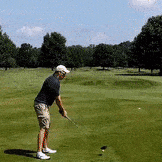IGNORED
Should players be DQ'd for penalties assessed after they sign their scorecard?
Note: This thread is 4022 days old. We appreciate that you found this thread instead of starting a new one, but if you plan to post here please make sure it's still relevant. If not, please start a new topic. Thank you!
0
-
Topics Being Discussed Right Now on The Sand Trap
-
- 6,578 replies
- 253,638 views
-
- 21 replies
- 2,231 views
-
"5 Minutes Daily" Practice Challenge 1 2 3 4 839
By iacas, in Instruction and Playing Tips
- 5 minutes daily
- dedication
- (and 6 more)
- 15,084 replies
- 908,596 views
-
Strategy on Neshanic Valley Ridge #2 1 2
By billchao, in Instruction and Playing Tips
- neshanic
- mystrategy
- (and 2 more)
- 25 replies
- 2,805 views
-
2024 TST Outing - June 1/2 @ EagleSticks and Virtues 1 2 3 4 10
By StuM, in Member Outings & Meetups
- 167 replies
- 13,188 views
-







Recommended Posts
Create an account or sign in to comment
You need to be a member in order to leave a comment
Create an account
Sign up for a new account in our community. It's easy!
Register a new accountSign in
Already have an account? Sign in here.
Sign In Now